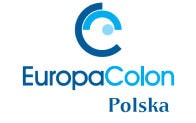Acetylsalicylic Acid and Colorectal Cancer Prevention: Exploring the Platelet Function of Its Mechanism of Action
NCT02125409
Interventional
Phase 3
Unknown status
In a preliminary study in healthy subjects, the investigators determined the pharmacokinetic and pharmacodynamic of enteric-coated acetylsalicylic acid (ASA) (Adiro 100 mg, Bayer), and the variability (coefficient of variation), accuracy and precision of a novel biomarker of ASA action, i.e., quantification of the extent of COX-1 acetylation at serine-529, using a stable isotope dilution liquid chromatography multiple reaction monitoring/mass spectrometry (LC-MS) technique. Now, the investigators will perform a clinical study in individuals undergoing Colorectal cancer (CRC) to validate the hypothesis that that low-dose ASA given once daily is acting primarily by selectively acetylating platelet COX-1 and suppressing its activity throughout the 24-hour dosing interval. In contrast, it is expected that the inhibitory effect on extra-platelet sources of COX-1 will be short-lasting, if any, affecting only partially COX-1, and this effect will be completely reversed at 24 hours after dosing. This is an important point which will strengthen the platelet hypothesis underpinning the apparent adequacy of a 24-hour dosing interval of ASA administration for the anticancer effect detected in cardiovascular trials. These patients will be stratified into individuals with adenomas/carcinomas (20 to 30%) and patients without clinically detected adenomas/carcinomas (about 70 to 80%).
May 31,2014
All
18 Years
69 Years
18 Years
69 Years
40

